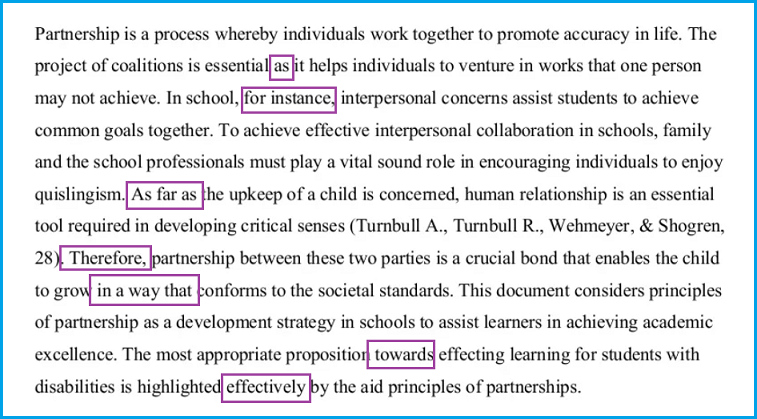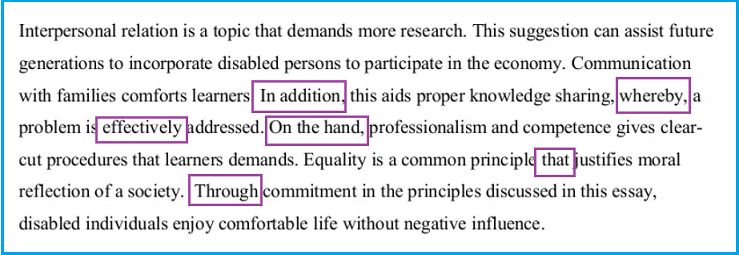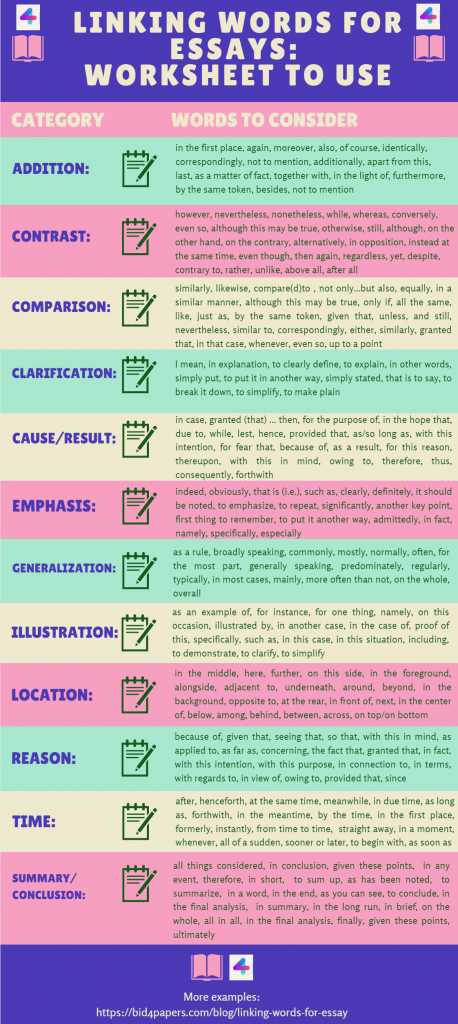Let’s face it: You can’t write an essay (or any other writing piece) without linking words.
Also known as connecting words or transition words, they serve to make your writing flow and help those reading your work follow the flow of your thoughts, ideas, and arguments.
This post is your guide to linking words and their role in writing. Not only will you learn the types of these words, examples, and reasons to use them, but you’ll also get a massive list of transition words and phrases as well as linking words PDF to download and use whenever necessary.
If you’ve ever typed “write my college essay” into Google because you’re stuck staring at a blank page, here’s the secret most tutors won’t tell you: your essay doesn’t need more research or bigger words — it needs better transition words to make your ideas flow smoothly and impress your professor.
Table of contents
What are Linking Words?
Linking words are lexical items (words and phrases) we use to connect ideas in writing and get a reader to the next sentence or paragraph.
They aren’t about essay writing only:
Whether you write a fiction book, marketing content, academic works, autobiography, or poems, you’ll need to connect ideas. That’s what transition words do:
They link your thoughts and arguments into a chain to show how they relate to each other. Also known as transition words, these phrases often start a sentence or a paragraph. However, you’ll also use them in the middle of sentences to bring ideas together.
The most common places for linking words in essays are:
- the start of a paragraph
- the start of a sentence introducing a new idea or extending an argument
- the beginning of a concluding statement
Why Use Transition Words in Essays
Essay linking words is an integral part of academic writing. Put it simply, you can’t write a paper without using them; otherwise, your writing won’t make any sense for readers.
Transition words for essay serve to:
- connect ideas in writing
- create a flow of thoughts and arguments for readers to understand what you want to say
- guide readers from one idea to another, demonstrating how they relate to each other
- hook readers and encourage them to read the next sentence or paragraph
- add more information
- support or contrast a point
- show the result, conclude, demonstrate an effect of this or that point
Using a paraphrasing tool as well as an essay maker and connecting words, each sentence and paragraph must pass readers on to the next one. These connecting words serve as an instrument to guide readers from one thought or point to the next.
Linking Words Examples
Linking words examples are many, and it’s clear why: every piece of writing contains tons of connecting and transition words.


Types and List of Linking Words to Use in Essays
Below you’ll find the ultimate list of transition words for essays by categories. Choose the role you need a word to play (reason, contrast, emphasis, restatement, etc.) and consider the corresponding table of transitions.
If you need the whole transition words list in one place, jump to the next category of this post to find the downloadable linking words pdf.
And now, for connecting words categories:
Addition/Agreement/Similarity
These words serve to add info to what you’ve previously stated, demonstrate the commonality between arguments, and support your thoughts.
| in the first place, again, moreover, in like manner, also, of course, in the same fashion/way, identically correspondingly, not to mention, additionally, just as… so, too, apart, from, this, last | not only … but, also, to, as well as, in addition, then, likewise, first, second, third, uniquely, similarly, to say nothing of, too, along with, furthermore, over | as a matter of fact, and together with, coupled with, equally, comparatively, in the light of, like, furthermore, as, by the same token, besides, coupled with, not to mention |
Contrast/Contradiction/Limitation/Opposition
Linking words for contrast is your instrument to show how things are different and provide counterarguments.
| however, nevertheless, nonetheless, in contrast/in comparison, while, whereas, conversely, differing from, even so, although this may be true, otherwise, albeit, besides, be that as it may | still, although / even though, though, on the other hand, on the contrary, alternatively, in opposition, instead, nor, different from, at the same time, even though, then again, regardless | but yet despite, in spite of, as opposed to, contrarily, contrary to, rather, though, unlike, of course …, but, albeit, above all, in reality, after all |
Comparison/Concession/Condition
These lexical items will help you if you need to provide conditions to your statements, show how things are different/similar, or accept a point with reservation.
| similarly, likewise, also, compare(d) to / with, not only…but also, alike, equally, in a similar manner, in common, still another, although this may be true, as, on the condition that, only if, admittedly, all the same, even though, however, despite | like, just as, just like, as with, both, by the same token, in like manner, in the same way, because of, even if, given that, since, then, unless, although, and still, and yet, nevertheless, nonetheless | similar to, same as, compare, correspondingly, either, equal, most important, resembles, similarly, granted that, if, in that case, when, whenever, while, be that as it may, even if, even so, up to a point |
Clarification
These words will help you with personal or narrative essays: They are linking words in opinion writing that indicates you’re going to explore ideas in more detail.
| I mean, in explanation, in lay terms, to clearly define, to explain | in other words, in simple terms, simply put, to put it clearly, to put it in another way | simply stated, that is to say, to break it down, to simplify, to make plain |
Cause/Effect/Result
Cause and effect connecting words do what their name says exactly: demonstrating a cause of some point and providing the result of what has been done or started.
| if, in case, granted (that) … then, for the purpose of, when, so that, in the hope that, while, due to, in view of, while, lest, hence | provided that, as/so long as, unless, with this intention, whenever, so as to, to the end that, for fear that, because of, so, as a result, as a consequence (of), for this reason, thereupon | given that, on, (the) condition, (that) only/even, if, with, this, in mind, since, owing to, in as much, as, in order to, as seeing/being, that, therefore, thus, consequently, forth, with, then |
Emphasis/Example
These words are for putting forward your point more forcefully, providing examples.
| undoubtedly, indeed, obviously, for instance, that is (i.e.), such as, chiefly, clearly, definitely, it should be noted, naturally, never, to repeat, on the negative side, significantly, on the positive side, to enumerate, another key point, first thing to remember, to emphasize, to put it another way, truly | generally, admittedly, in fact, including, namely, specifically, especially, even, importantly, obviously, of course, particularly / in particular, truly, with this in mind, point often overlooked, frequently, to explain, by all means, surely, in this case, to demonstrate, for this reason | particularly, in particular, especially, for example, to illustrate, above all, absolutely, in detail, in truth, indeed, positively, surprisingly, to clarify, with attention, without a doubt, specifically, most compelling evidence, expressively, that is to say, with attention to, certainly, for one thing, as an illustration, to be sure |
Generalization
Perfect transition words for hypothesis essays, generalization lexical items serve to make a general statement you’ll then specify and prove in detail.
| as a rule, broadly speaking, commonly, mostly, normally, often | for the most part, generally speaking, in general/ generally, predominately, regularly, typically | in most cases, mainly, more often than not, on the whole, overall |
Illustration
These words and phrases are for you to provide examples in essays.
| as an example, of, for example, for instance, for one thing, like, namely, on this occasion | illustrated by, in another case, in the case of, proof of this, specifically, such as | in this case, in this situation, including, to demonstrate, to clarify, to simplify |
Location/Place/Space
Use these words to provide order and reference or clarify spatial relationships between your points or ideas.
| in the middle, here, further on this side, where, wherever, in the foreground, near, alongside, down, beneath, adjacent to, underneath, around | to the left/right, there beyond, in the distance, from around, in the background, above, up, beside, opposite to, under, surrounding, at the rear | in front of, next, nearby, here and there, over, before, in the center of, below, among, behind, between, across, on top, on bottom, adjacent |
Reason/Reference
These transitional words will help you demonstrate relationships between ideas and provide reasons for what and why has started or occurred.
| because, of, for the purpose of, given that, seeing that, so that, with this in mind, as applied to, as far as, concerning, the fact that | granted that, in fact, in order to, with this intention, with this purpose, for, considering, in connection to, in terms, with regards to | in view of, owing to, provided that, because, since, as, regarding, speaking about/of, with respect to |
Time/Sequence
Use these words in your essay when you need to indicate the time and order of what you say.
| at the present time, after, henceforth, at the same time, until, meanwhile, in due time, then, first, second, as long as, forth, within, the meantime, by the time, in the first place, next, formerly, instantly, quickly | from time to time, later, whenever, up to the present time, till, further, until now, before, in time, when, straight away, in a moment, whenever, all of a sudden, now, suddenly, presently, finally | sooner, or, later, last, eventually, to, begin, with, since, during, as, soon, as, hence, prior, to, once, without, delay, about, at, this, instant, now, that, immediately, shortly, occasionally, another |
Summary/Conclusion/Restatement
Restatement words will help you express an alternative to what you previously stated. They work for all essay types.
Use summary and conclusion transitional phrases to sum up your points and come up with the final paragraph of your writing.
| as can be seen, after all, overall, all things considered, in conclusion, by and large, given these points, in essence, in any event, for the most part, altogether, as noted, therefore | generally speaking, in fact, ordinarily, as shown above, in short, to sum up, as has been noted, to summarize, in either case, in the end, as you can see, to conclude | in the final analysis, in summary, usually, in the long run, in brief, on the whole, in a word, on balance, all in all, in the final analysis, finally, given these points, ultimately |
The Ultimate List of Connecting Words: Download
And now, for the most interesting and practical part:
Below you can find the linking words worksheet that gathers all the most commonly used transitional words in essays. Feel free to download this linking words PDF and refer to it every time you write an essay and experience writer’s block:

Do you need more guides and worksheets like this to assist you with academic writing? Please share your ideas in the comments, and our essay writers will be happy to help!








